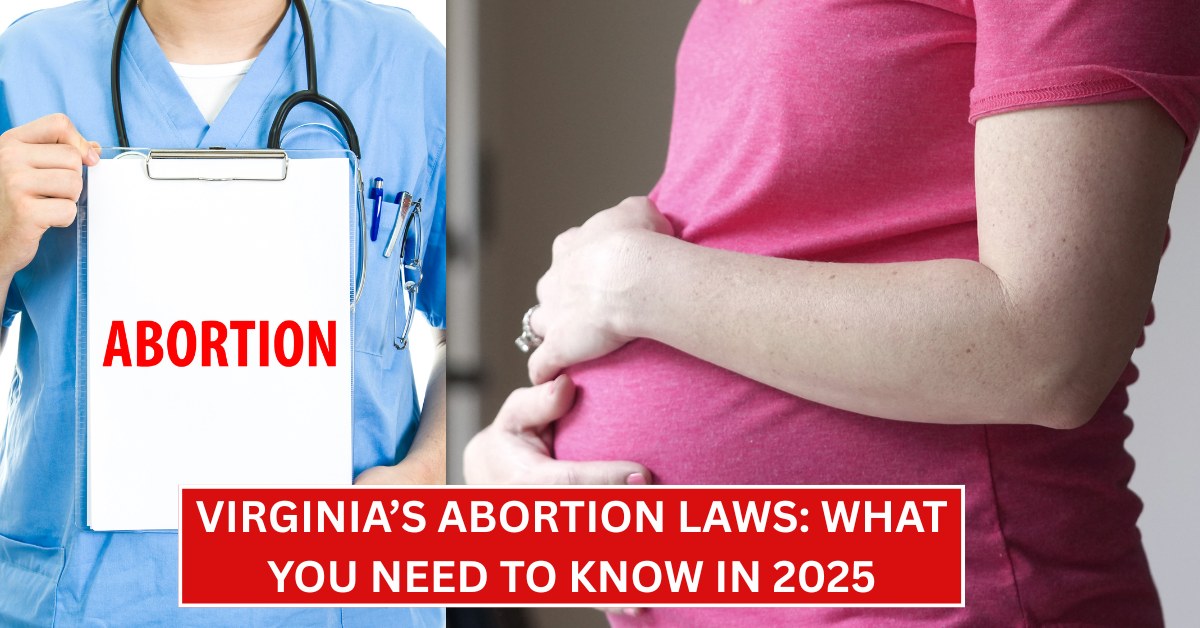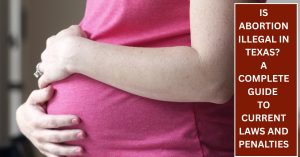Virginia stands out as one of the few states in the South where abortion remains legal and accessible. Unlike many neighboring states that have imposed strict bans or severe restrictions following the overturning of Roe v. Wade, Virginia has maintained protections for reproductive rights.
Currently, abortion is legal in Virginia up to 26 weeks and 6 days of pregnancy, making it one of the most permissive states in the region for abortion access.
However, the legal landscape is not entirely without restrictions. While the state does not enforce a blanket ban, certain regulations and requirements are in place. For example, minors under 18 must obtain parental consent before undergoing an abortion, though judicial bypass options are available. Additionally, Virginia repealed several medically unnecessary barriers in 2020, such as mandatory waiting periods and ultrasounds, streamlining access for patients.
Understanding Virginia’s Abortion Laws: The Current Legal Framework
Virginia’s abortion laws are structured around gestational limits and medical necessity:
- First Trimester (Up to 12 Weeks): Abortion is legal and can be performed by a licensed physician or an advanced practice registered nurse. No additional restrictions beyond standard medical regulations apply.
- Second Trimester (13 to 26 Weeks): Abortions are permitted but must be performed in a licensed hospital or medical facility.
- Third Trimester (After 26 Weeks): Abortions are only allowed if the life or health of the pregnant person is at risk, as certified by a physician.
Unlike states with near-total bans, Virginia does not criminalize abortion providers or patients seeking care within these limits. The state also prohibits extradition for individuals facing charges related to reproductive healthcare that is legal in Virginia—a measure designed to protect both patients and providers from out-of-state legal actions.
Political and Legislative Battles
Despite Virginia’s relatively protective laws, the future of abortion access in the state remains uncertain due to ongoing political debates. A proposed constitutional amendment to enshrine reproductive rights is currently at the center of legislative battles. If passed, the amendment would solidify abortion access in the state constitution, preventing future lawmakers from easily rolling back protections.
However, the amendment’s fate hinges on the upcoming elections. Democrats, who currently hold a slim majority in the state legislature, support the measure, while Republicans have largely opposed it. If Democrats lose control in the next election cycle, the amendment may not reach voters in 2026 as planned.
Governor Glenn Youngkin has previously expressed support for a 15-week abortion ban, which could become a reality if Republicans gain full legislative control. This has intensified campaigning efforts from both sides, with reproductive rights advocates warning that Virginia could follow other Southern states in restricting access.
Regional Implications
Virginia’s status as the only Southern state without post- Roe abortion restrictions has made it a critical access point for people traveling from neighboring states with bans. For example:
- North Carolina prohibits abortion after 12 weeks.
- Tennessee and South Carolina have near-total bans with limited exceptions.
- West Virginia also enforces a strict ban with few allowances.
This has led to an influx of patients seeking care in Virginia, particularly in cities like Richmond, Charlottesville, and Northern Virginia, where clinics are more accessible. Healthcare providers in these areas have reported increased demand, underscoring Virginia’s role as a regional safe haven for reproductive healthcare.
Personal Stories and Public Opinion
The debate over abortion in Virginia is not just political—it’s deeply personal. Many candidates running for office in the state have shared their own experiences with abortion, pregnancy loss, and reproductive healthcare to highlight the real-world consequences of restrictive laws.
For instance, Jessica Anderson, a Democratic candidate for the Virginia House of Delegates, has spoken openly about terminating a pregnancy in college due to failed birth control. She credits access to abortion with allowing her to later build the family she wanted. Stories like hers have become central to campaigns, with advocates arguing that abortion bans strip away personal freedoms and endanger lives.
Public opinion in Virginia appears to favor maintaining legal access. Polls suggest that a majority of Virginians support abortion rights, mirroring national trends. Ballot measures in other states—such as Michigan and Ohio, where voters have upheld reproductive rights—indicate that such protections could succeed in Virginia if put to a popular vote.
The Future of Abortion Access in Virginia
The coming years will be pivotal for abortion rights in Virginia. Key factors that will shape the future include:
- The 2025 Elections: Control of the state legislature will determine whether the constitutional amendment moves forward.
- Potential Legislative Changes: A Republican majority could introduce new restrictions, such as a 15-week ban.
- Legal Challenges: Ongoing court battles over medication abortion and interstate travel bans could indirectly impact Virginia’s laws.
For now, abortion remains legal in Virginia, but the state’s policies are far from settled. Advocates continue to push for permanent protections, while opponents seek to impose stricter limits. The outcome will have lasting implications not just for Virginians but for the broader South, where access to reproductive healthcare is increasingly scarce.
Conclusion
Abortion is not illegal in Virginia, but the legal and political landscape is in flux. The state currently allows abortions up to nearly 27 weeks, with exceptions for health risks later in pregnancy. However, the lack of constitutional protections means these rights could be vulnerable to future legislative changes.
As Virginia prepares for crucial elections and potential ballot measures, the fight over reproductive rights will remain a defining issue. For now, the state stands as a critical access point in the South—but whether it stays that way depends on the decisions of voters and lawmakers in the years ahead.




